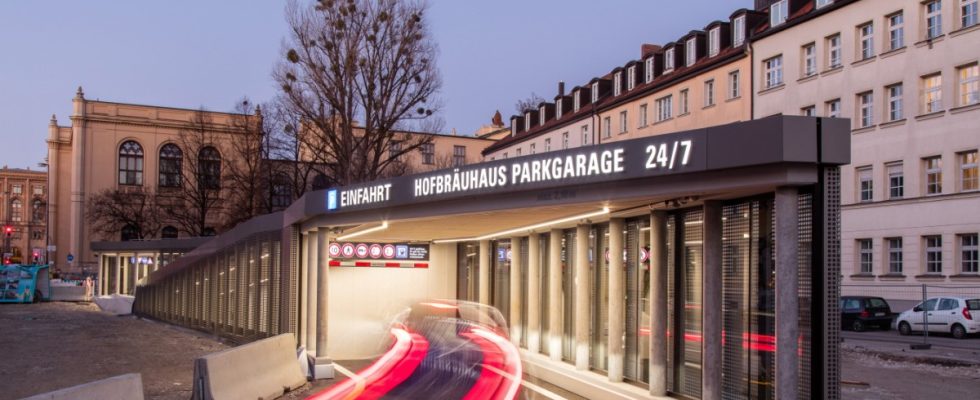For the CSU in Munich City Hall, car traffic makes an important contribution to business life in the city center. The Christian Socialists have therefore called a new application package “I park, so I buy: Why Munich’s city center needs car traffic and how it can be distributed better.”
The CSU wants to make the use of underground car parks and parking garages within and along the Old Town Ring easier and more financially attractive through a uniform system. Currently there is often still a lot of space for cars underground, while visitors cannot find a parking space above ground and the streets are clogged. Parking in the underground car parks should therefore be free as long as visitors spend a certain amount in the shops. This could happen, for example, by validating the parking ticket at the checkout.
Parking should also be free on Saturdays from 5 p.m. and Mondays to Fridays from 6 p.m. This increases the incentive to only drive into the city outside of rush hour. At the same time, a visit to the city in the evening hours, which are important for culture and gastronomy, will become more attractive for many people.
The park-and-ride system should also become cheaper, the reason being: anyone who commutes by car to a park-and-ride facility and then takes public transport will be penalized twice. Parking fees plus an MVV ticket sometimes cost more than parking in the city, and the journey takes longer due to the change. This is counterproductive because the use of park-and-ride makes ecological sense and reduces traffic jams.
Construction site maps are intended to ease the traffic jam problem
Finally, the CSU addresses another hot topic: construction site management. This needs to be improved, for example by publishing construction site maps for the entire city. “It would also be desirable to have a newsletter for every district that provides information about upcoming construction sites. This makes planning easier for residents and businesses. A corresponding application has already been submitted,” the Christian Socials said.
They refer to a recent study “Munich city center – status quo and prospects for the business location”, according to which drivers spend on average more money in the city center than public transport users, namely 246 euros instead of 114 euros.
“The Greens would like to ban all cars from the city center,” writes CSU parliamentary group leader Manuel Pretzl. “But the reality is different: shops and restaurants rely heavily on visitors who come by car.” The city government should give up its “deluded fight against the car” and rather invest its energy in “smart solutions”.
The Greens counter this with other figures from the same study. The office of the second mayor Dominik Krause comes from a reference to a survey among passers-by. This has shown that the desire for a car-friendly city is limited. When asked what characteristics the city center should represent in the future, most of the 912 respondents (89) answered “public transport-friendly”, closely followed by “pedestrian-friendly” (88) and “green” (83). The “car-friendly” feature only found 33 supporters and ended up in the 22nd and last place of the answers.
There are five fewer parking garages today than in 2016
In fact, the number of parking garages in and around the city center has decreased by five locations since 2016. According to the mobility department, this has various reasons. On the one hand, garages were closed in connection with the new construction of the Munich main train station and the future redesign of the station square, on the other hand, the closure was due to real estate developments, for example at the former Karstadt location at the main train station, at the site of the former Car Park Cristal on Schwanthalerstrasse or at the now demolished parking garage on Adolf-Kolping-Straße.
Including the future underground car park in the new Königshof with 118 parking spaces, there are currently 20 publicly accessible parking garages in the center of Munich (old town and main station district), according to the mobility department. This corresponds to around 7,800 parking spaces, of which around 5,000 are available as short-term parking spaces.
No additional capacity will be created here, just a replacement for the parking spaces that have been lost. According to the Mobility Department’s assessment, there is a need for this in order to provide an “appropriate offer outside of public road space” for the “unavoidable visitor traffic” by car. This is intended to avoid “diffuse traffic looking for a parking space” and the associated burdens.

